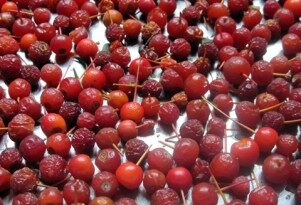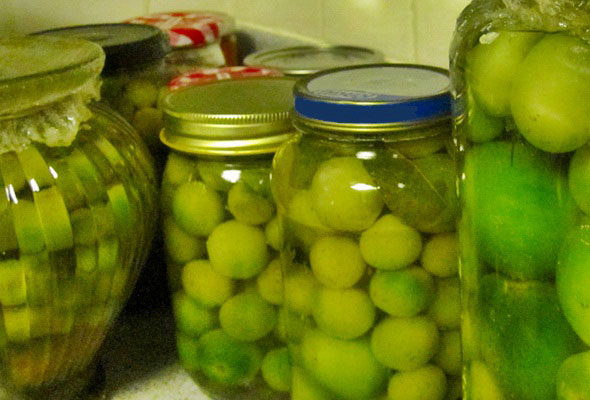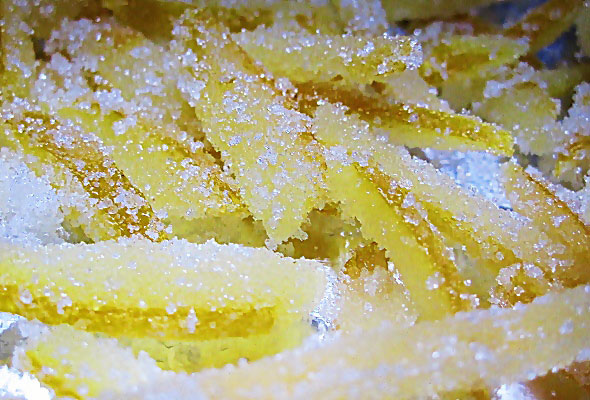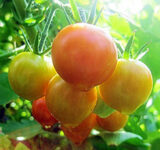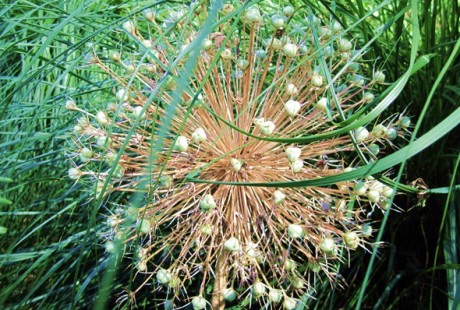first tomatoes
The first tomatoes, from the Supersweet 100 variety. This year’s production is not overwhelming, but adequate. If you never grew tomatoes before and would like to start, here are the basics.
Starting tomatoes from seed is very easy, their germination rate is close to 100%, they grow very fast in their starting pods and faster still once transplanted in their permanent location. Don’t start them more than six weeks before the date of the last frost in your area, they tend to grow leggy and chlorotic because the growing medium becomes insufficient.
There are two types of tomatoes: indetermined, that yield gradually throughout the summer and grow indefinitely, and determined, which grow in compact bushes and yield abundantly at a single time.
Once transplanted outside the seedlings need support; cages are better than poles, which tend to topple under the weight of the chords and foliage. Allow the plants to grow to the top of the supports and once they achieve the desired height, pinch their growth tips to stop them, otherwise they’ll keep putting their effort into leafing out and not into fruit production.
Pinch the suckers (the growth that develops at the junction between the main chord and the leaf stems), and all extraneous foliage, this will expose the bloom and fruit to the sunshine and keep air flowing freely around the plants, to discourage black spot, mildew and rot.
Make sure the tomatoes’ permanent location receives at least six hours of direct sunlight a day, eight if possible, otherwise they will not produce, and feed them regularly through the summer, like all vegetables they are hungry plants.
Fresh garden soil is wonderful if you are building your own vegetable frames, but you can grow tomatoes very successfully in the soil you already have, they’re not particular about their medium as long as it’s fertile.
Don’t overwater, let the plants develop healthy root systems that reach deep into the soil for moisture.
At the end of the season, once the temperatures stay consistently below seventy degrees, the fruit won’t ripen anymore, no matter how long it remains on the vine.




 Previous Post
Previous Post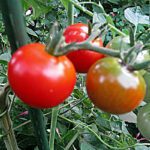 Next Post
Next Post
